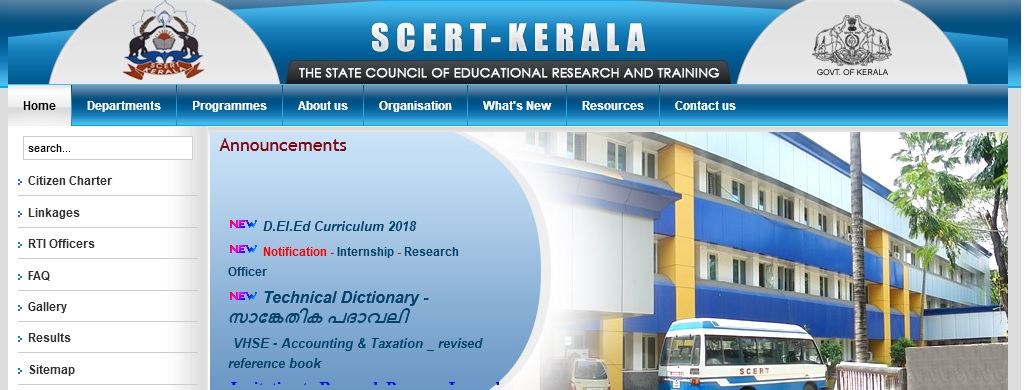scert.kerala.gov.in : Class XI Gandhian Studies Question Paper Model State Council of Educational Research & Training
Board :State Council of Educational Research & Training
Exam : HSE Gandhian Studies
Document Type : Model Question Paper
Website : scert.kerala.gov.in
Download Model/ Sample Question Papers : https://www.pdfquestion.in/uploads/6658gandhianstudiesXI.pdf
SCERT Gandhian Studies Question Paper -I
Maximum : 60 Scores
Time: 2 hrs
Cool off time : 15 Minutes
Related : State Council of Educational Research & Training Class XI Social Work Question Paper : www.pdfquestion.in/6657.html
General Instructions
** There is ‘Cool off time’ of 15 minutes in addition to the writing time of 1 hrs.
** You are neither allowed to write your answers nor to discuss anything with others during the ‘cool off time’.
** Use the ‘cool off time’ to get familiar with questions and to plant your answers.
** Read the questions carefully before answering
** All questions are compulsory and only internal choice is allowed.
** When you select a question, all the sub-questions must be answered from the same question itself.
** Calculations, figures and graphs should be shown in the answer sheet itself.
** Malayalam version of the questions is also provided.
** Give equations wherever necessary
** Only nonprogrammable calculations are allowed in the Examination Hall.

Sample Questions
1. India had a rich culture. Identify the Indian word used to denote it. (1)
2. From the following find out the individual satyagraha organized by Mahatma Gandhi
a. Champaran satyagraha
b Anti war satyagraha
c. Salt satyagraha
d. Vaikom sataygraha (1)
3. Pick out the inevitable component of satyagraha from the following
a. Self sufficiency
b. Self suffering
c. Self reliance
d. Self realization (1)
4. Gandhi had a clear cut vision about an ideal state. Name it. (1)
5. Find out the most vital and integral part of non co-operation. (1)
6. Write the name of political organization established by M.K. Gandhi in SouthAfrica. (1)
7. Fill in the blanks with apt words
a. According to Gandhiji ………… is the answer to the communal problems
b. Religion is the vehicle for peaceful relation with oneself, others and………… (2)
8. Buddha’s main teachings include in his noble truths and Eight fold paths. Specify the noble truths. (2)
9. Gandhi realized that no one can become civilized just through imitation. Explain the context. (2)
10. Comment on Mahatma Gandhi’s ‘Last will and Testament’. (2)
11. Mahatma Gandhi suggested various methods to practice religion. Briefly explain these methods .
12. Vinoba Bhave developed and practiced Gandhian concept of trusteeship. Evaluate. (3)
13. Alcoholism is a severe problem in our state. Provide your suggestions to tackle the problem in tune with Gandhian ideas. (3)
14. Sarvodaya is the ideal social order of Mahatma Gandhi . Explain its origin and meaning. (3)
15. From the given three sets find out the apt combinations (4)
16. In Indian Freedom Movement, some leaders suggested the use of violent methods. But Mahatma Gandhi opposed this. Analyze the reason on the basis of Gandhi’s views on ‘Ends and Means’. (4)
17. Mahatma Gandhi put forward various steps for the success of a Satyagraha. Briefly explain any eight of them. (4)
18. Various socio-political activities of Gandhi in South Africa made him a ‘social activist’- Explain these activities.
19. Through various incidents Mahatma Gandhi dominated the Indian political scene from 1919 to 1947. Narrate any five incidents. (5)
20. ‘Village Swaraj’ is the Gandhian model of rural reconstruction. Analyze this, based on the principles of Village Swaraj. (6)
21. Gandhian economics is entirely different from the other economic systems. Analyze this with special reference to basic principles of Gandhian economics. (6)
22. John Ruskin’s ‘Unto This Last’ made immediate and deep impact on Gandhi. Examine (3)
23. It is generally admitted that morality is an integral part of religion. Comment it on the basis of Gandhian ideas (3)
24. Gandhian concept of Rights and Duties is based on his philosophy of simple living and high thinking. Evaluate. (3)
25. Satyagraha and passive resistance are two methods of meeting aggression. Differentiate it by specifying any four items. (4)
26. Gandhi was “a saint in politics” said C.F. Andrews. Analyze the reasons. (4)
27. Centralization, mechanization and industrialization are the bases of modern economic system, but Mahatma Gandhi opposed this. Find out the reasons. (4)
28. Village swaraj is the Gandhian model of rural reconstruction. Evaluate this by specifying its features. (5)
29. Through sarvodaya Mahatma Gandhi envisaged a classless and castless society free from all social evils. Critically examine this by specifying social ideas of Gandhi. (6)
30. Gandhi envisaged a universal religion which sought Truth and pleaded for help to the helpless. Analyze this by specifying his views on religion and means to practice religion. (6)
Really helpful for my studies.